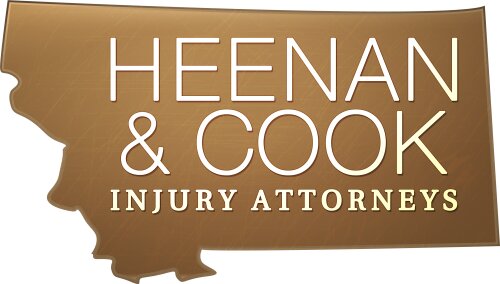Best Health insurance Lawyers in Billings
Share your needs with us, get contacted by law firms.
Free. Takes 2 min.
List of the best lawyers in Billings, United States
1. About Health insurance Law in Billings, United States
Health insurance law in Billings is shaped by a mix of federal protections and Montana state regulation. The Affordable Care Act (ACA) sets core consumer protections and creates health insurance marketplaces, while Montana regulators oversee coverage forms, rates, and insurer conduct within the state. This combo affects how you obtain, use, and challenge health coverage in Billings and surrounding areas.
Most disputes fall into a few common areas, including denials of benefits and questions about medical necessity. In Billings you can pursue internal insurer appeals, seek regulatory help, or hire an attorney to navigate complex disputes. Understanding both federal and Montana rules helps you protect your rights when seeking care at local providers like Billings Clinic or St. Vincent Healthcare.
The ACA limits pre existing condition denials and establishes essential health benefits for plans sold in the individual and small group markets. For specifics on marketplace plans, open enrollment, and appeal rights, consult federal resources. For Montana specific programs like Medicaid, CHIP, and state consumer protections, consult state guidance as well.
For more details on ACA protections and the health insurance marketplace, see Healthcare.gov. For state programs like Medicaid, visit the Montana Department of Public Health and Human Services site. For federal program information, see Centers for Medicare and Medicaid Services.
2. Why You May Need a Lawyer
Here are concrete, real world scenarios where residents of Billings commonly seek legal help in health insurance matters.
- Denial of coverage for a procedure at a local hospital. A patient has a medically necessary surgery denied by the insurer as not covered. An attorney can review the policy, file internal and external appeals, and pursue regulatory remedies if needed. This often requires detailed medical records and precise policy language to prevail.
- Challenge to medical necessity determinations. Insurers sometimes dispute the necessity of tests or treatments. A lawyer can translate medical notes into policy terms and help you present a stronger case for coverage under Montana and federal rules.
- Out of network emergency care in Billings clinics. If an emergency room visit at a local hospital results in a surprise balance bill or in network vs out of network dispute, a health insurance attorney can negotiate, appeal, or pursue appropriate regulator channels.
- Employer sponsored plan disputes or COBRA issues. When coverage changes after job transitions or you seek continuation under COBRA, a lawyer can ensure timely notices, proper premium calculations, and correct plan administration.
- Premium increases and late payment penalties in Montana plans. Large premium hikes or misapplied payments can require an attorney to challenge billing practices or file complaints with regulators if needed.
- Medicaid and CHIP eligibility or coverage problems in Billings. State programs have specific rules for eligibility, renewals, and covered services. An attorney can help with application denials or abrupt terminations of benefits.
3. Local Laws Overview
Federal law: Affordable Care Act (ACA)
The ACA established consumer protections, essential health benefits, and market reform for plans sold in the United States, including Montana. It prohibits denying coverage for pre existing conditions and sets rules for appeal rights and internal reviews. For plan options and marketplace enrollment, federal guidance applies across Billings and the rest of Montana.
Key resources on the ACA and marketplace options are available at the Healthcare.gov site and the Centers for Medicare and Medicaid Services portal.
Montana Insurance Code and state regulation
Montana regulates health insurers through state law, notably the Montana Insurance Code. This includes rules on policy forms, rate approvals, benefit design, and the handling of claims. The Montana framework impacts how plans are issued, renewed, and how disputes are resolved within the state.
Residents should review Montana specific guidance for consumer protections and rights under state law, alongside federal protections. For state level information, consult Montana state resources via the Montana Department of Public Health and Human Services and related state pages.
Medicaid and CHIP under federal and state authority
Medicaid and CHIP provide health coverage for eligible Montanans and are administered under the Social Security Act and evolving state plans. In Montana, Medicaid decisions and covered services follow both federal guidance and Montana state program rules. Issues often involve eligibility determinations, renewals, and service authorizations.
See CMS for federal Medicaid/CHIP framework and DPHHS MT for Montana specific program details.
4. Frequently Asked Questions
What is the difference between an appeal and a complaint in health insurance?
An appeal challenges a coverage decision within the insurer's process. A complaint usually addresses regulator guidance or mis conduct by the insurer in processing claims.
How do I file an appeal for a denied medical claim in Billings?
Start with the insurer's internal appeal process, then escalate to a external review if required. Document medical records and policy terms for a stronger appeal.
When can I enroll in a health plan outside open enrollment in Montana?
Qualifying life events trigger special enrollment periods. Check Healthcare.gov for current dates and requirements in Montana.
Where do I file a health insurance complaint in Montana?
Complaints can be filed with the insurer first, then with the Montana state consumer protection channels if unresolved.
Why was my medical necessity denial by an insurer?
Insurers may dispute clinical necessity based on the policy, guidelines, or documentation. A lawyer can help align medical records with policy language.
Can I sue my insurer for bad faith in Montana health coverage?
Bad faith claims depend on specific actions and state law. An attorney can assess whether you have a viable bad faith or breach claim.
Should I hire a health insurance attorney for a simple claim?
Even simple claims benefit from legal review to avoid procedural errors and ensure timely appeals or regulator contact.
Do I qualify for Medicaid benefits in Montana?
Medicaid eligibility depends on income, family size, and other factors. A lawyer or a state caseworker can help determine eligibility.
Is pre existing condition coverage guaranteed under the ACA in Billings?
Yes, ACA plans generally cover pre existing conditions and do not deny based on health history in the individual and small group markets.
How much does a health insurance attorney cost in Billings?
Costs vary by case and attorney, commonly ranging from hourly rates to flat consult fees. Some may offer limited scope services.
What is the typical timeline for an insurance appeal in Montana?
Internal insurer appeals often take weeks to months. External or regulator reviews may extend to several months depending on complexity.
5. Additional Resources
- Healthcare.gov - Official federal site for health insurance marketplaces, plan options, and enrollment guidance. https://www.healthcare.gov
- Montana Department of Public Health and Human Services - State program information for Medicaid, CHIP, and health services in Montana. https://dphhs.mt.gov
- Centers for Medicare and Medicaid Services - Federal guidance on Medicare and Medicaid programs, provider rules, and consumer protections. https://www.cms.gov
6. Next Steps
- Define your health insurance issue and gather all relevant documents including policy, EOBs, denial letters, and billing statements. Do this within 7 days of identifying a problem.
- Research local health insurance attorneys in Billings who focus on coverage disputes and regulatory matters. Check recent case experience and bar association referrals within 1 week.
- Schedule a consultation to discuss your case, expected timelines, and fee arrangement. Plan for a 30-60 minute meeting and bring all documents.
- Ask about fees and structure Clarify hourly rates, retainer requirements, and whether the attorney offers limited scope services for your issue. Get a written engagement letter.
- Prepare questions and goals List your coverage goals, desired outcome, and any deadlines for appeals or regulator filings. Share a copy of all records with your attorney.
- Decide on a strategy With your attorney, decide whether to pursue internal appeals, external reviews, regulator complaints, or litigation. Align expectations and timelines.
- Begin attorney work and track timelines File required notices, requests for records, and appeals. Monitor deadlines and keep your attorney informed of new bills or notices.
Lawzana helps you find the best lawyers and law firms in Billings through a curated and pre-screened list of qualified legal professionals. Our platform offers rankings and detailed profiles of attorneys and law firms, allowing you to compare based on practice areas, including Health insurance, experience, and client feedback.
Each profile includes a description of the firm's areas of practice, client reviews, team members and partners, year of establishment, spoken languages, office locations, contact information, social media presence, and any published articles or resources. Most firms on our platform speak English and are experienced in both local and international legal matters.
Get a quote from top-rated law firms in Billings, United States — quickly, securely, and without unnecessary hassle.
Disclaimer:
The information provided on this page is for general informational purposes only and does not constitute legal advice. While we strive to ensure the accuracy and relevance of the content, legal information may change over time, and interpretations of the law can vary. You should always consult with a qualified legal professional for advice specific to your situation.
We disclaim all liability for actions taken or not taken based on the content of this page. If you believe any information is incorrect or outdated, please contact us, and we will review and update it where appropriate.









